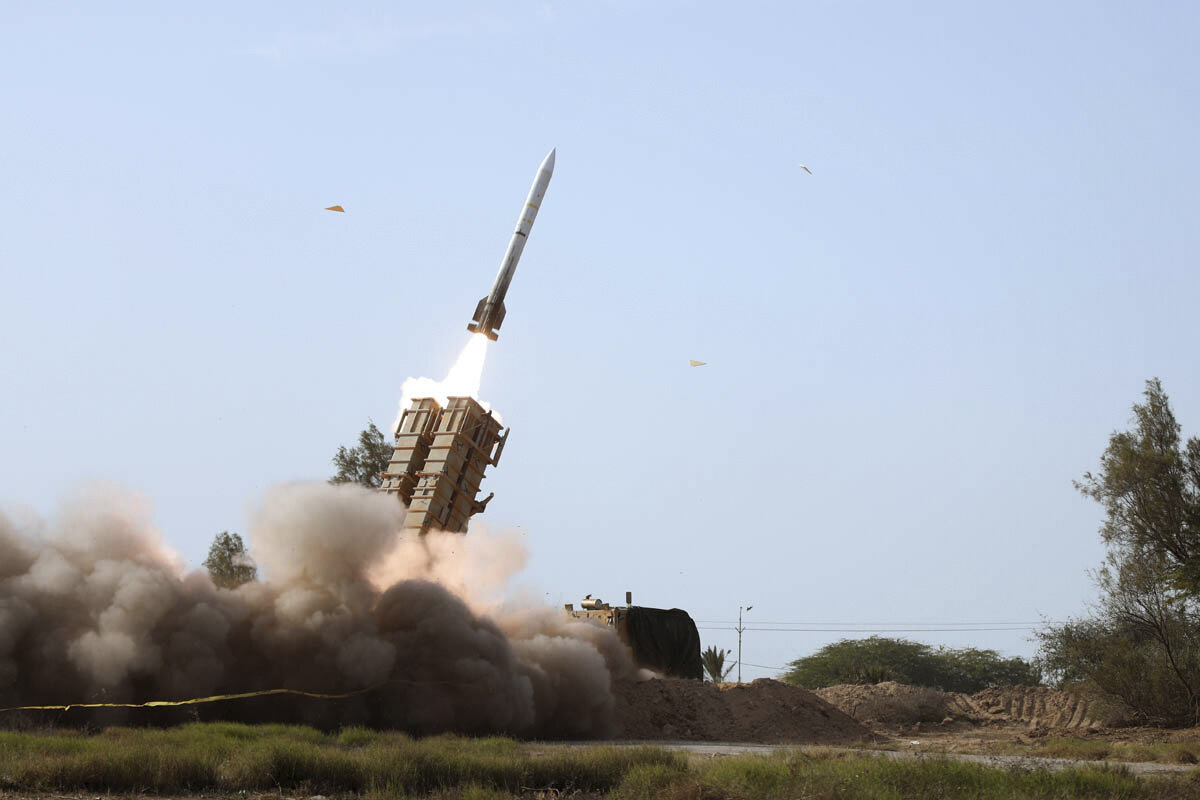Will Iranian restraint prevent a ‘wider war’?
TEHRAN - In the past few days, as Israel has been awaiting a retaliation from Tehran in response to its April 1 attack on the Iranian embassy in Damascus, Western media outlets have become deranged in trying to “keep the situation calm” in West Asia.

A brief review of the headlines from prominent news channels and websites in the West shows Israel’s stenographers deliberately omit how tensions have risen to unprecedented levels in the first place. Titles like “Oil flares up over Iran attack fears”, “Flights rerouted amid Iran fears”, and “The Middle East is on the precipice of the wider war no one wants” all talk about the fact that Tehran is poised to attack Israeli positions, without really mentioning why it is being forced to take such action. An article appearing on Deutsche Welle, titled “Iranian embassy attack has Israel, Middle East on edge” might even make you think that Iran could have prevented Israel’s strike by not having an embassy in Syria.
Western media outlets advocate for restraint, just like the various foreign ministers that called for reserve on phone calls with their Iranian counterpart Hossein Amir Abdollahian on Thursday and Friday. However, these same figures and media platforms were nowhere to be found in the past six months when Israel was carrying out assassinations of military personnel across West Asia. Additionally, they remained silent during a Security Council meeting regarding the regime's assault on the Iranian embassy. Concerns about the potential for a full-scale war in West Asia only emerged once it became evident that Iran was prepared to take action in response to the attacks.
A think tank which, as described on its website, is supposed to “prevent wars and shape policies that will build a more peaceful world” has also acquired the same rhetoric. If you rummage through articles the International Crisis Group has published in the past year, you won’t be able to find any warnings about the risks of Israel’s repeated assaults on Syrian soil or its assassination of military officials.
The think tank suddenly expresses grave concern on April 13, warning about the “devastating” consequences of a direct confrontation between Iran and Israel.
“An attack by Iranian forces on Israel, especially a direct one, is likely to invite an escalatory response in the form of Israeli reprisal. Israeli officials have made clear that Israel would reciprocate in kind to a direct targeting of its territory. Washington is unlikely to sit idly by, either, regardless of its disagreements with Israel over Gaza. In other words, Iranian action, even if conceived in Tehran as calibrated in nature and limited in scope, could quickly spark a wider confrontation involving each side’s respective allies,” the entity wrote.
What each of these officials and analysts fails to point out is that a lack of response from Iran in this particular case does not actually resolve the issue. Even if Iran does not retaliate this time, there is no guarantee a wider war is not on the way.
Israel has been acting outrageously for a long time. Only a change of the dynamics is going to rein in this rogue regime. The West doesn’t look to be willing to pull the plug on Israel, so that leaves Iran with limited choices. Iran can either let the regime continue its aggression out of fear of a “wider war” or decide that enough is enough. Israel should be put in its place, otherwise, it will plunge the whole region into a conflagration even without an imminent Iranian attack.
source: tehrantimes.com